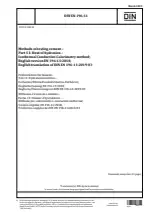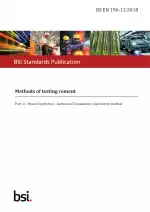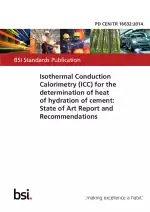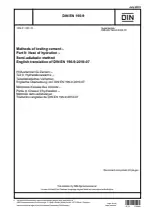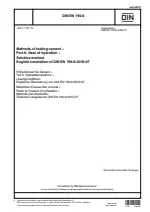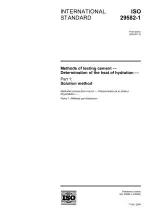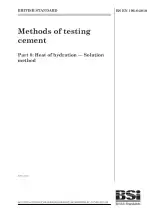Methods of testing cement - Part 11: Heat of hydration - Isothermal Conduction Calorimetry method
Also Known As:
The DIN EN 196-11 standard describes the apparatus and procedure for determining the heat of hydration of cements and other hydraulic binders using the isothermal conduction calorimetry method. This test method is specifically designed to measure the heat of hydration of cement up to 7 days, providing a correlation between Isothermal Conduction Calorimetry (ICC) and other relevant standards such as EN 196-8 and EN 196-9.
Unlike the EN 196-8 standard, which provides a single measurement of heat of hydration at a fixed test age, the DIN EN 196-11 standard allows for continuous measurement of heat of hydration over time. This is achieved by monitoring the heat flow versus time during the hydration process. It should be noted, however, that the 7-day test duration may be challenging for some apparatus, even if they are capable of functioning properly for shorter test ages.
| Descriptors | Binding agents, Calibration, Cements, Checking equipment, Construction, Construction materials, Definitions, Heat flux, Heat measurement, Hydration heat, Isothermal, Mixing, Precision, Samples, Testing, Time, Time constant, Testing devices |
| ICS Codes | 91.100.10 - Cement. Gypsum. Lime. Mortar |
| Language(s) | English |
| File Size | 2.0 MB |

